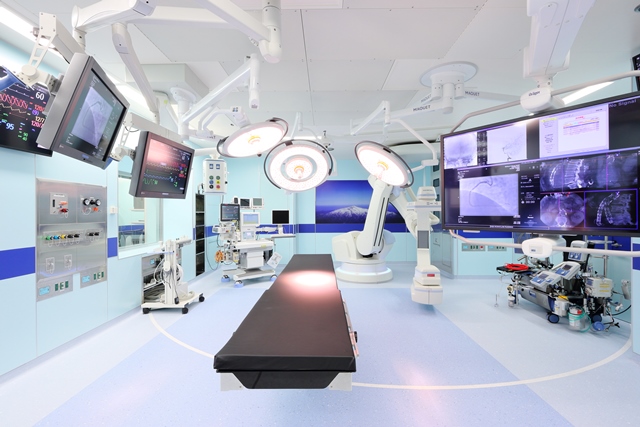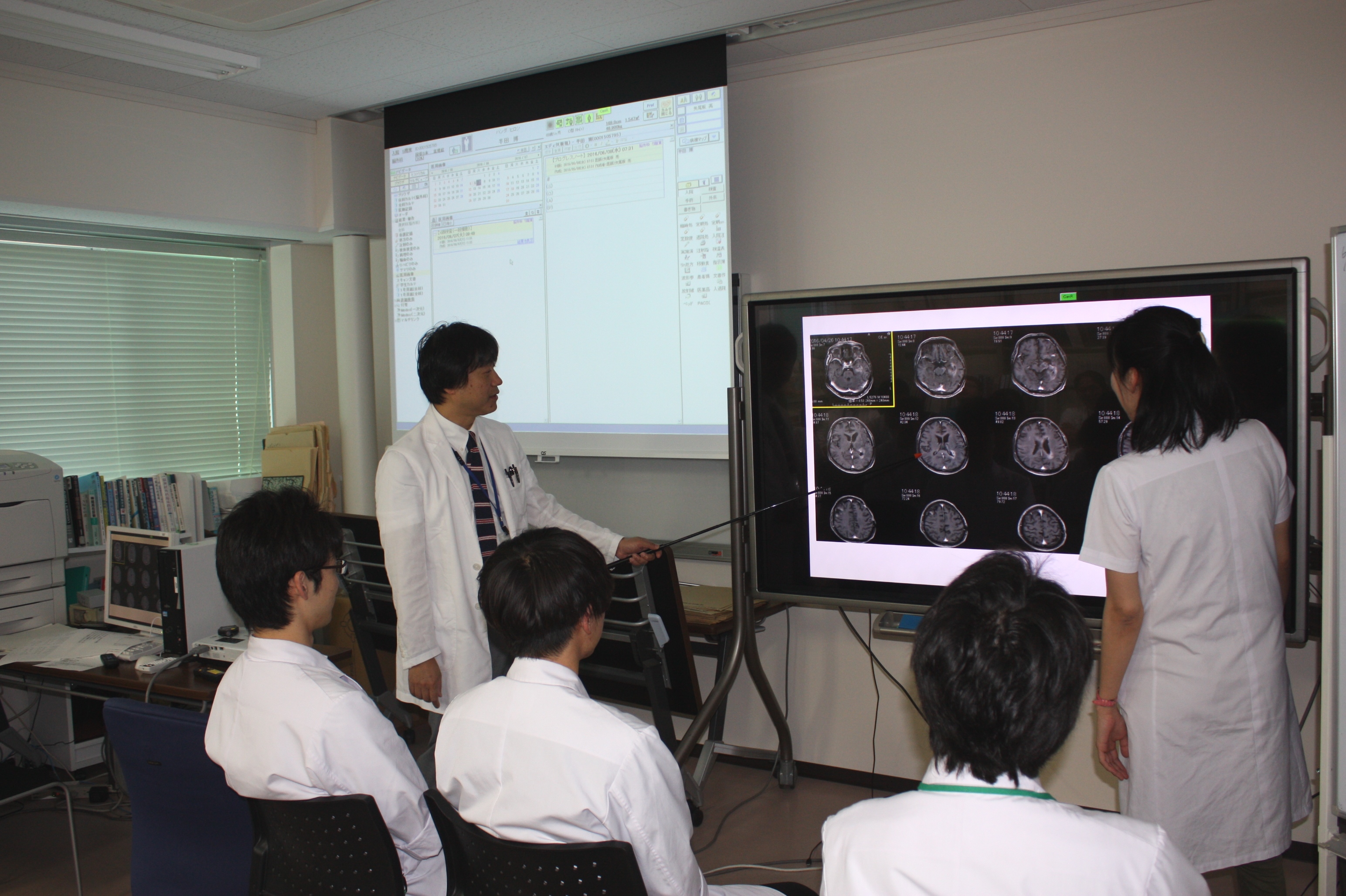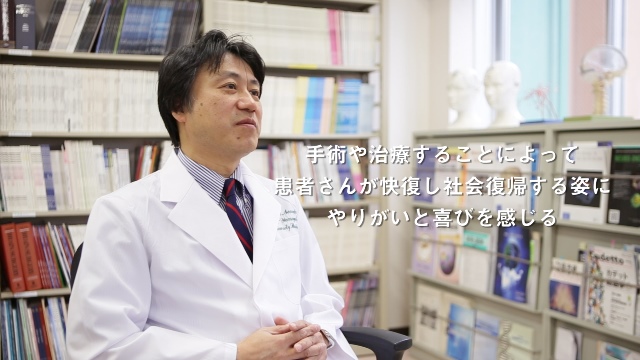







Home > Research > Research Overview > 2016 > Faculty of Medicine
Professor of Neurosurgery
Yukihiko Sonoda

▲Hybrid operating rooms for treatment of difficult cerebrovascular lesions.
The course in Neurosurgery at the Yamagata University Faculty of Medicine conducts examination, treatment, education and research for major brain diseases including brain tumors, cerebrovascular disease, and head trauma. Unlike other organs, functions such as movement, language, memory, and emotions are divided finely and complexly within the brain. Accordingly, we must consider how to effectively treat affected regions of the brain while minimizing the impact on the patient's daily life. To achieve this goal, we have implemented cutting-edge technology for use in treatment. Examples include awake craniotomy in which patients are awoken from anesthesia during operations in order to check brain functions, intraoperative MRI equipment for checking full removal of the tumor during an operation, and hybrid operating rooms which enable treatment of difficult cerebrovascular lesions.

▲At a conference.
In terms of education, we focus on instilling students with clinical ability through classes for third- and fourth-year students. During clinical training for fifth- and sixth-year students, training is held at Yamagata University Hospital, local emergency hospitals, and other regional medical institutions based on the student-doctor system. We seek to instill students with high-level clinical ability while they are still atuniversity.

▲Nothing brings more happiness than seeing a patient make a healthy recovery from operation/treatment.
There are many brain diseases for which treatment is difficult and causes have not been identified. I believe that it is our important mission to actively conduct research aimed at saving the lives of patients dealing with such diseases.